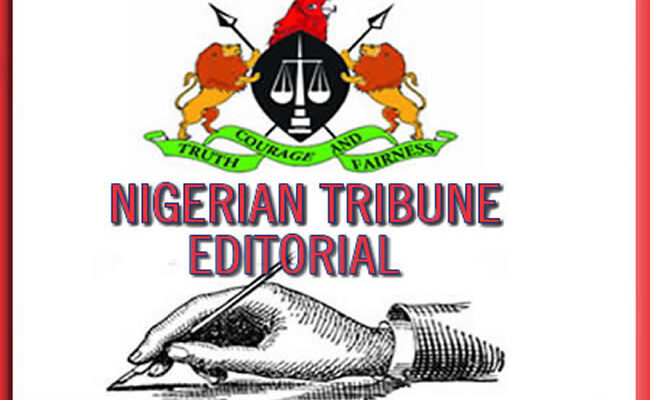

THE occasion of a New Year address is typically not one for bloodying people’s noses with uncomfortable truths, so the fact that the chairman of the Economic and Financial Crimes Commission (EFCC), Ola Olukoyede, recently decided to use precisely such a platform to literally look the staff of the commission in the eye says something about the seriousness of the message he was eager to pass across. The chairman’s message, as it happens, is one that is not entirely new to a cross section of Nigerians, and it concerns widespread allegations that some of the commission’s investigators had been perverting the course of justice by pressuring individuals and corporate entities that they were investigating into paying them money under the table. Such investigators, in other words, were running with the hare and hunting with the hounds at the same time.
Mr. Olukoyede could not have been more vigorous in his condemnation of such alleged duplicity, calling it “too embarrassing” to the commission and promising to drop the hammer on whoever was caught in the act. His words: “The craze and quest for gratification, bribes and other compromises by some of our investigators are becoming too embarrassing and this must not continue…. Let me sound a note of warning in this regard. I will not hesitate to wield the big stick against any form of infraction by any staff of the commission.”

We salute Mr. Olukoyede for his courage and back his call for transparency within an institution that is the institutional epitome of probity. In an institutional landscape dominated by all manner of pretenders and outright frauds, we share his concern and desperation to ensure that the EFCC does not fall into an all too familiar ethical morass. The indictment of certain past leaders of the commission has certainly not helped matters. However, inasmuch as we give our undiluted support to Mr. Olukoyede, we also think that there are important issues that ought to be raised, not just for his personal edification but for the attention of all Nigerians. The point is this: at the moment, EFCC is arguably the only institution left standing to tackle endemic corruption in the country, and it says something about the relative honesty and dignity of its staff that a cross section of Nigerians still largely trusts it to do its job. To fully appreciate this point, one only has to compare the attitude of Nigerians towards EFCC with the attitude of the same Nigerians toward, say, the Nigerian judiciary or the police.
While this trust is appreciated, it invariably begs the question of how long it can continue, and more broadly, whether it is right, in a country where corruption is so deeply embedded in the social fabric, to have a single institution continue to stand out for its transparency. Lest our intention be misunderstood, we are not saying that Mr. Olukoyede should abandon the quest for transparency and accountability among his staff. All we are doing is flagging the moral contradiction of expecting one institution to remain sane amid endemic insanity, and whether ultimately, it makes any practical or moral sense to expect one institution to tackle a problem that is so wide in its scope.
In the meantime, Mr. Olukoyede deserves the support of all Nigerians. We too shall be watching, hoping that his commitment goes beyond rhetoric and that he continues to put his money where his mouth is.








